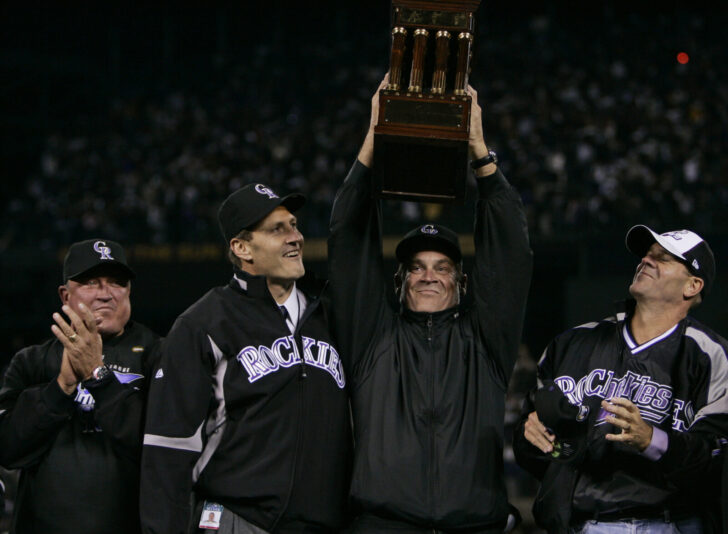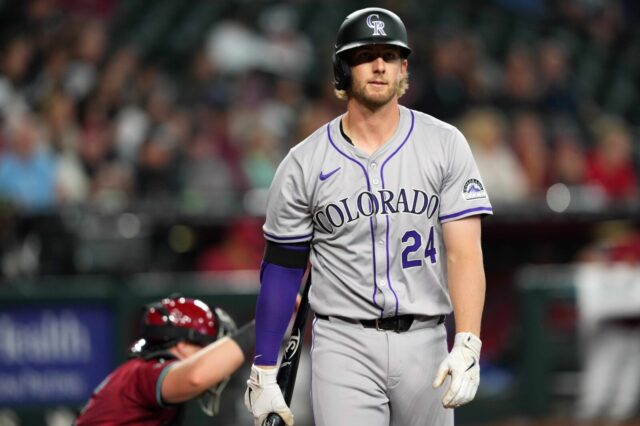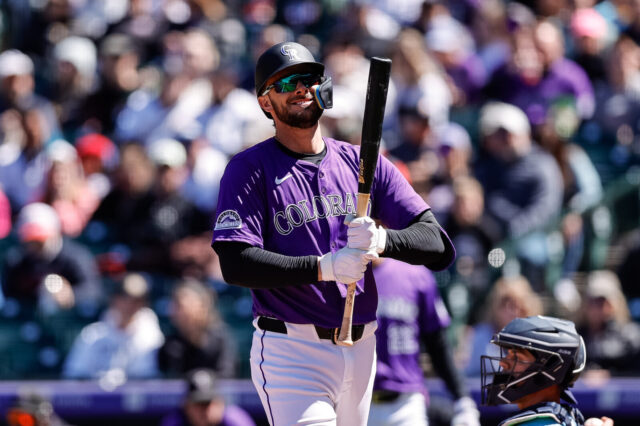Strike 3: There’s a current generation of Colorado Rockies fans that don’t know who Keli McGregor was, and will always be. Sure, there’s a popular new retail area near 20th and Blake that bears his name. But who was he, and what did he do? There are always people who point at the retired “KSM” jersey on the wall at Coors Field and ask someone sitting near them, “Who’s that?”
The tributes are for Keli Scott McGregor, former Rockies team president. He remains the biggest loss in Rockies history, bar none. Whether you knew him or not, you miss Keli McGregor.
We’ve just passed April 20th, the 14th anniversary of Keli’s untimely and shocking passing due to a rare heart ailment. He was taken far too young, at the age of just 47, when his post playing career was just about to take off. Had Keli not died that day in a hotel room in Salt Lake City, the trajectory of the Colorado Rockies might look very very different.
At the time of his death, Keli was a young and upcoming front office executive, a former college football star and NFL tight end turned baseball man, constantly looking for new and improved ways to do things. His personal ties to the Rockies first principal owner, Jerry McMorris, led him to his first gig with his brand spanking new hometown baseball team, following stints in the admin offices at the University of Florida and the University of Arkansas. McGregor had graduated from Colorado State by way of Lakewood High, and his local roots made him a great choice to join the Rockies fledgling front office, even if his baseball background and knowledge was limited.
But that’s what made Keli so special. He knew what he didn’t know, and he was always trying to learn, and change what needed to be changed. At 6-foot-8 and a sculpted 250 pounds, he looked the part of Clark Kent, and within the walls of Coors Field, played the role of Superman. When something needed fixing, it was most often Keli to the rescue.
He wasn’t the field manager or the GM when the Rockies made their only World Series appearance in 2007, but his fingerprints were all over that team. Mostly, his methods were popular and welcomed by his co-workers and his colleagues, many of whom would get phone calls from the former Denver Bronco asking for their take on what the Rockies were doing – and not doing – right.
Today, the “Rockies Way” remains totally inclusive. Almost in a bubble, very definitely existing within one of those “echo chambers” that are so notable these days. Under the current ownership and management, Colorado operates very differently from other Major League Baseball teams. On the business side, they might be the very best out there.
No one who’s paying attention needs to be reminded how things are going on the baseball side.
As team president, Keli was just the opposite, always reaching out, searching for outside input and actively seeking new ideas and information. Perhaps someone like his confidante, baseball legend Jack McKeon, had noticed something that the Rockies could do differently or better? Keli never hesitated to pick up the phone.
Had Keli remained in his position into the next decade, perhaps the Rockies would have been quicker to embrace something like analytics, for instance? Perhaps better baseball decisions would have been made in terms of what proved out to be horrible free agent contracts? Maybe a lynch pin like D.J. LeMahieu would have remained in purple? Perhaps even a certain star third baseman? Sadly, we’ll never know.
His opinion and advice gathering approach was laid to rest with Keli in April of 2010.
He was a wonderful husband, father and friend. Keli is missed by those of us who knew him well for those reasons. He’s missed by those who never knew him for an entirely different reason.





